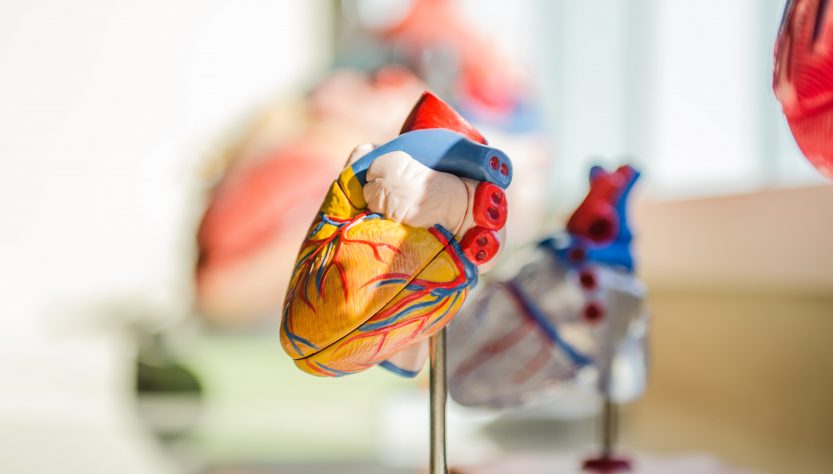[su_note note_color=”#f4f4f4″ text_color=”#000000″ radius=”3″ class=”” id=””]
Health Care Ethics
By: Dr. Jafar (Omar) Naghshabandi , American Board of Periodontology
Head of Periodontology Department -Dentistry Faculty- TIU
Ethics in the medical profession goes back to ancient Egyptian times (16th century B.C.) when Hammurabi set fees according to the social status of the patient and codes were laid down for physicians and surgeons.
In the present era, many principles and values stated in numerous oaths and declarations form the basis for ethical practices in health care. The well-known Hippocratic Oath is one of these many oaths recited by new healthcare-related graduated over the centuries to adhere at all times to high standards of medical practice and ethics. In the past four decades, the four basic ethical principles of Biomedical Ethics by Tom Beauchamp and James Childress published in 1979, have been a foundation for medical ethics and values for health care providers and most professional medical societies/organizations.
The four main health care principles that Beauchamp and Childress developed, in short, are:
Respect for Autonomy
Respect for Autonomy in medical ethics requires respect for the decisions of adults who have the ability to make a self-determinant decision. It is vital for patients to have the right to express their wishes and make their own medical decisions after getting information from their doctor. It must never be assumed that because a patient is part of a particular culture or community, they uphold that community’s values and beliefs. Healthcare ethics of autonomy should lead the practitioners to the conviction that respecting the decisions and autonomy of their patients every day is a professional obligation.
Beneficence
The principle of beneficence exemplifies the concept of the moral obligation to act in the best interests of others. All recommended procedures and treatments must be with the intention to do the utmost good for the patient. To ensure beneficence, medical practitioners must develop and maintain a high level of skill and knowledge. The principles of beneficence surely require more than those of non- maleficence (to do no harm), because doctors must take all the positive steps to help people and not merely refrain from harm.
Non-Maleficence
It is probably the best known of the four principles that in short, means “TO DO NO HARM”. The obligation of non-maleficence certainly goes beyond only the obligation of not to cause harm, but also not to impose risks of harm. This principle must be the end goal for all of a practitioner’s decisions. It means that healthcare providers must consider whether other people or societies could be harmed by a decision, even if the decision benefit an individual patient.
Justice
Justice in medical ethics is an extremely sacred and complex pillar to consider. Justice is defined as “Follow the due process to determine limits on healthcare and treat patients alike”. However, everyone’s concept of fairness is different in the context of day-to-day health care priority-setting or rationing decisions by clinicians and administrators. Three different principles of justice in health care rationing decisions are commonly discussed in the academic literature: need principles, maximizing principles and egalitarian principles. However, no single moral principle is capable of addressing all problems of justice, and no single theory of justice or system of distributing healthcare is sufficient for constructive reflection on health policy.
It is paramount to appreciate the shortcomings of the above principals and the fact that they can only provide a framework for healthcare professionals to identify ethical dilemmas and find solutions for patient’s desires and needs. As medical professionals are held to the highest medical ethics standards, in addition to these four basic ethical principles, most health care associations and professional medical organizations have established medical ethical guidelines for their members in regard to patient’s human dignity, privacy, confidentiality, and patient rights.
Given the current economic and political environment in Kurdistan, health care providers will likely find more challenges in dealing with arising ethical Issues. Improving Access to Healthcare, Protecting Patient Privacy and Confidentiality, Building and Maintaining a Strong Healthcare Workforce, Marketing Practices, and Care Quality vs. Efficiency are among many issues that must be seriously discussed and addressed. As the increasing emphasis is placed on the affordability of health care, and as more cuts to health care system is on the horizon, we can anticipate more constraints in our ability to care for our patients. These financial and logistic limitations certainly come in direct conflict with our ethical obligation to provide optimal care for vulnerable patient groups.
Health care technology continues its advances, and complexity of contemporary healthcare environments bring with them even more increased obligations to our health care professionals to recognize, address, and manage the arising ethical issues. While we rightly invest in new medical technology, we must uphold and treasure the ethical values to be the best in serving humanity. As it has been said, “There may be medical tools in your hands to treat the patient, but those hands must be that of a loving, warm and conscientious human being.”
[su_image_carousel source=”media: 3016,3017″ limit=”20″ slides_style=”default” controls_style=”dark” crop=”4:3″ columns=”1″ adaptive=”yes” spacing=”yes” align=”none” max_width=”none” captions=”no” arrows=”yes” dots=”no” link=”none” target=”blank” autoplay=”5″ speed=”medium” image_size=”large” outline=”yes” random=”no” class=””]

